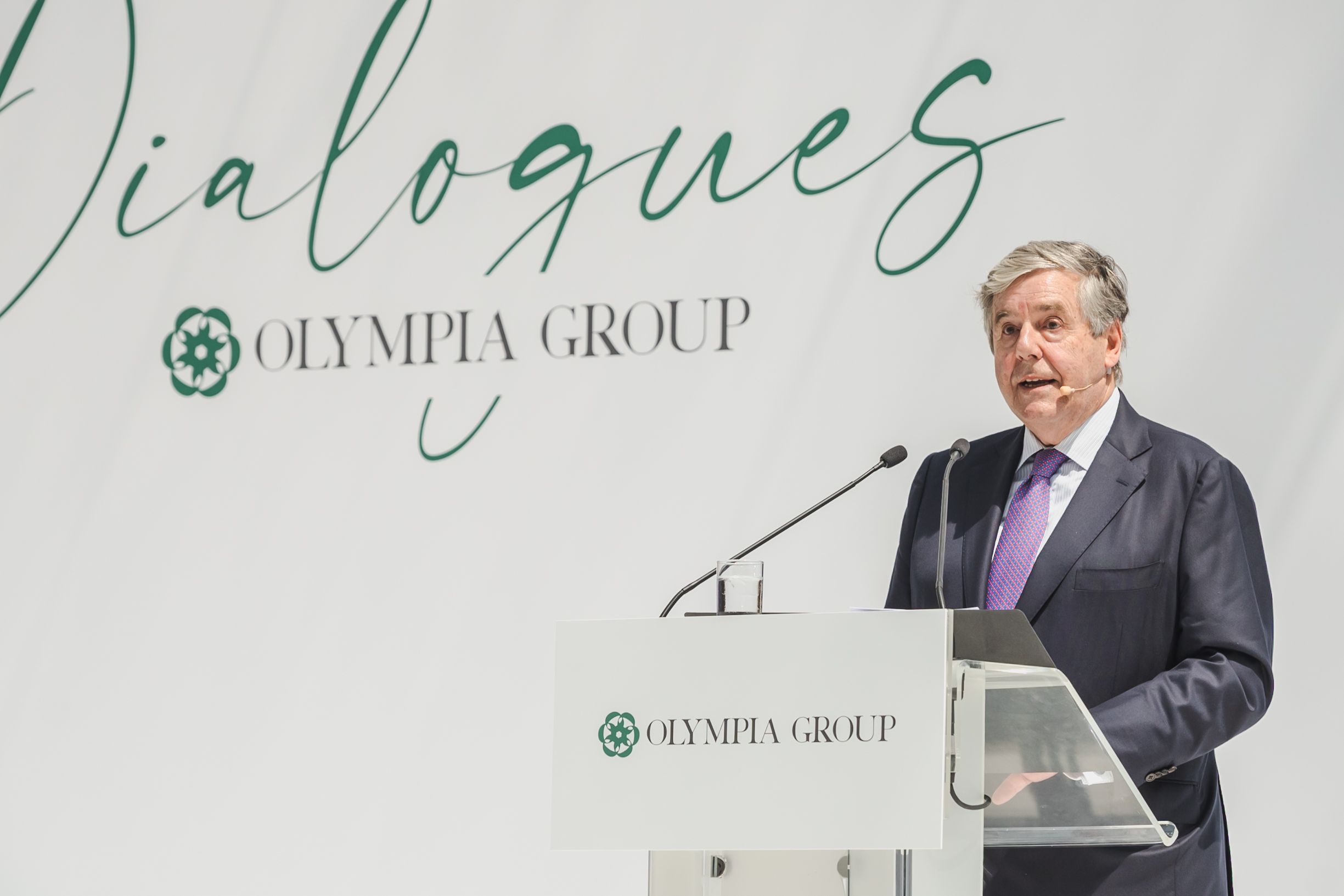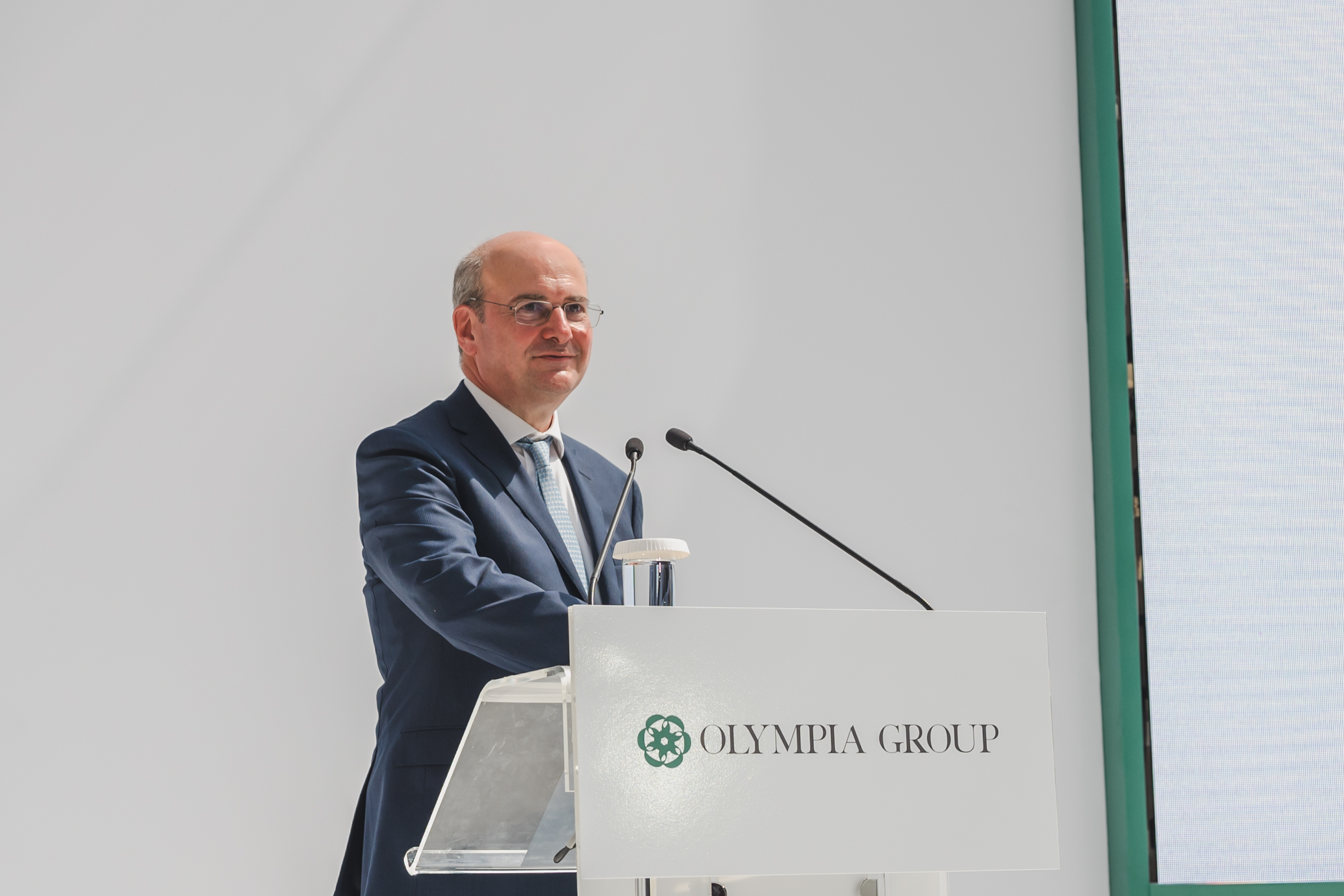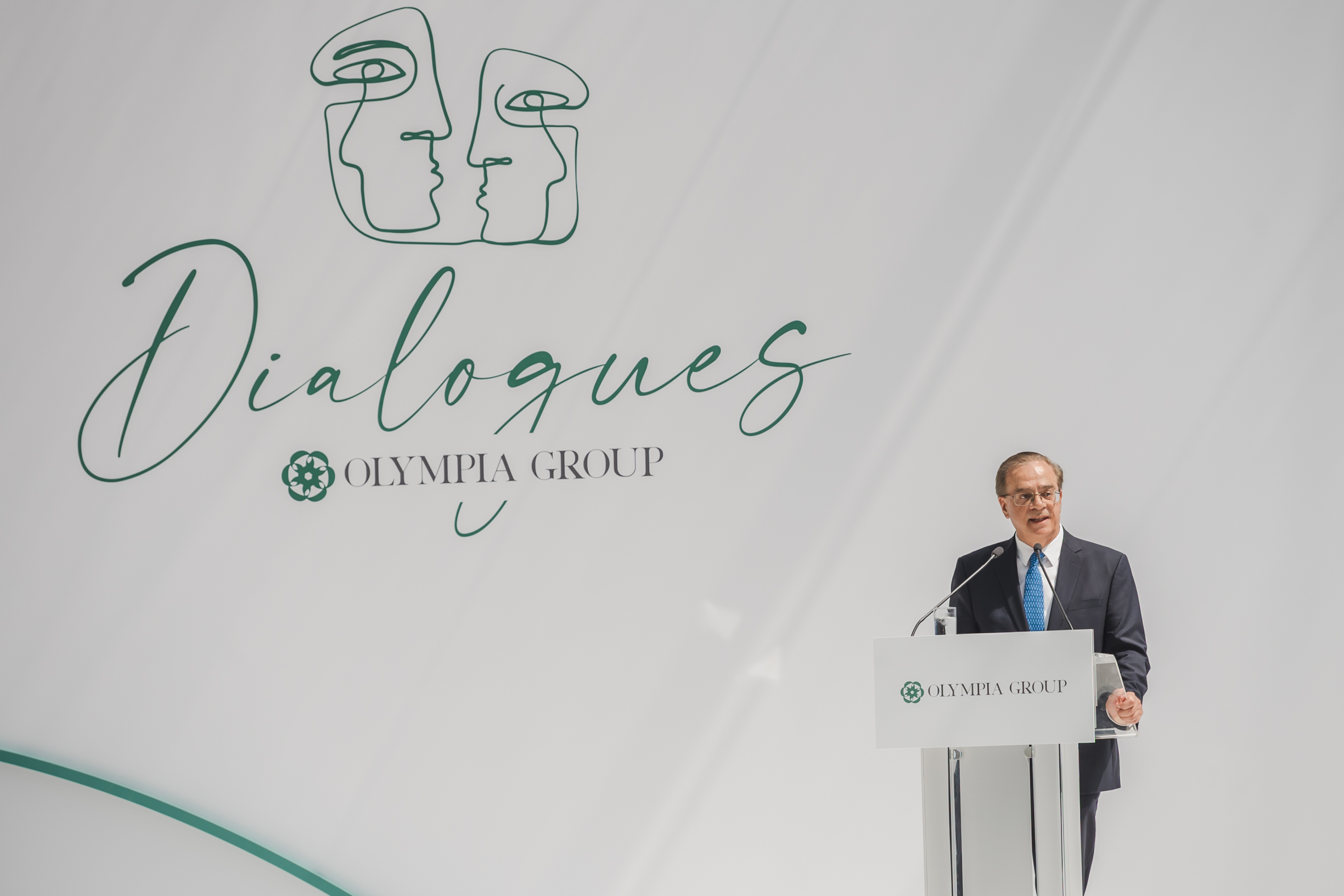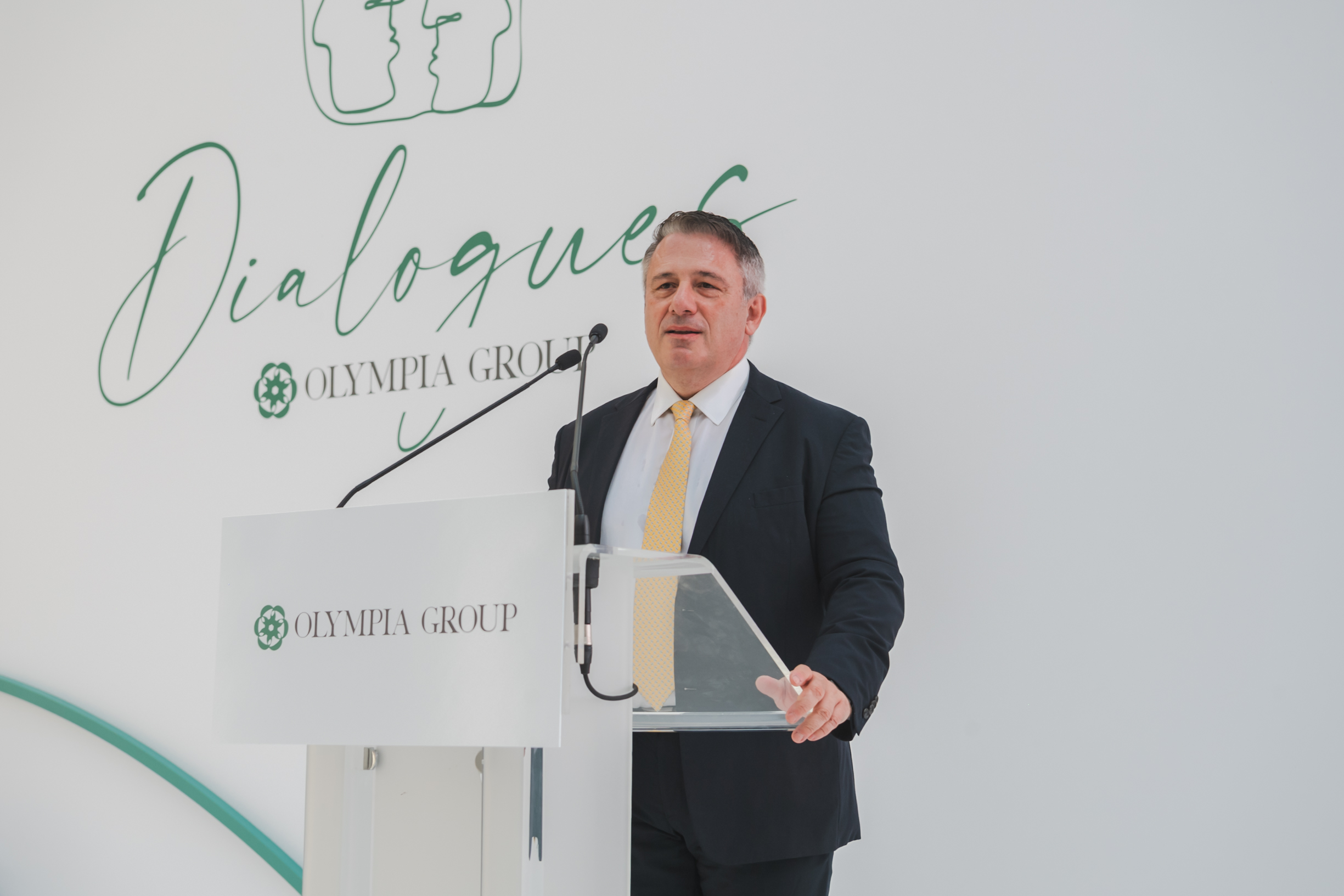Europe is facing significant challenges, and all stakeholders are called upon to make difficult decisions, because at the core lies the very existence of the European Union and the Eurozone. This was the central message of the Olympia Dialogues event, titled “Europe: Reclaiming Vision, Driving Action,” held today by the Olympia Group at the Zappeion Megaron, with keynote speaker Dr. Josef Ackermann and contributions from the Vice President of the Greek Government, Mr. Kostis Hatzidakis, the President of the Hellenic Bank Association, Mr. Gikas Hardouvelis, and the CEO of Olympia Group, Mr. Andreas Athanasopoulos.

“We are entering a new era of upheaval; a new world order is taking shape. Old practices are being abandoned, former alliances dissolved, and new ones are forming,” emphasized Dr. Ackermann, making particular reference to Russia’s invasion of Ukraine, which brought war back to Europe after 80 years, as well as to U.S. President Donald Trump’s policies.
“President Trump wants to make the U.S. a bit more like China,” noted the former head of Deutsche Bank and one of the most prominent figures in global finance, pointing out that competition with China is a top priority on the American agenda. “Containing China is the absolute priority. Addressing Russian imperialism is secondary,” Dr. Ackermann stated, emphasizing that the increase in NATO countries’ defense spending to 5% is a new reality.
Faced with these developments, the European Union has two options, Dr. Ackermann said. “The first is to follow another superpower, as it has done for years militarily with the U.S. The second is to develop its strategic autonomy—militarily in relation to Russia, economically in relation to China, and politically in relation to the U.S.” he stressed.
Guidance for what the EU should do can be found in Enrico Letta’s report on the single market and Mario Draghi’s report on EU competitiveness. “Especially Draghi’s report clearly outlines the existential risks the European project is facing and what must be done,” Dr. Ackermann noted, while also pointing out two key risks: First, the EU’s decision-making process may cause delays if member states fail to agree. Second, the EU’s fiscal rules restrict the capacity for public investment.
Nevertheless, Dr. Ackermann expressed optimism. “Europe has emerged stronger from the crises of recent years, and despite its slow and bureaucratic processes, its policies are stable,” he said, concluding: “The EU and the Eurozone are in existential crisis, but I believe we will ultimately do the right thing.”
K. Hatzidakis: Four Pillars for European Policy
“This is the first time the EU has been called to resolve so many intense contradictions,” emphasized Vice President of the Government Kostis Hatzidakis during his opening address, stressing that the EU must act without delay along five key pillars:
- First, boosting the competitiveness of the European economy, following the recommendations of the Letta and Draghi reports.
- Second, adopting effective common energy policies, including investments in infrastructure and real market integration.
- Third, maintaining political cohesion as a central pillar of European integration.
- Fourth, strengthening European defense, which Mr. Hatzidakis said is no longer a luxury but an immediate necessity. He also stressed that funds from the SAFE program must go exclusively to the European defense industry.
“Today, Europe must prove whether it truly grasps the magnitude and weight of the crises it faces,” the Vice President continued, adding: “We cannot continue operating on the logic of the lowest common denominator.”
Gikas Hardouvelis: Greek Banks on a Stable Growth Path
The need to complete the banking union and the capital markets union in Europe was the focus of Mr. Gikas Hardouvelis, President of the Hellenic Bank Association (HBA). “The banking sector is small, and something must be done about it,” he said, noting that European banks are significantly undercapitalized compared to those in the U.S. and Asia.
Regarding Greece, he noted that the banking sector has returned to steady profitability after a period of contraction and consolidation. Banks are now well-capitalized and possess substantial liquidity to finance economic growth. According to the HBA President, corporate lending is growing rapidly, with the loan stock increasing by 17%. Greek banks are supporting entrepreneurship at higher rates than their European peers. “Where we face issues is with households,” Mr. Hardouvelis added.
Andreas Athanasopoulos: Businesses Must Adapt
“We live in a world that is radically, unpredictably, and rapidly changing through SMS and tweets. In this environment, businesses must redesign how they invest, produce, think, and act, and states must remember what national strategy truly means,” emphasized Olympia Group CEO Andreas Athanasopoulos in his opening remarks, noting that Europe is hesitating.
“The topic of today’s event is not a slogan—it is a call to action,” Mr. Athanasopoulos stressed, adding that Europe stands at a critical crossroads, as its security model is no longer a given, and its growth model is faltering.
Referring to the Olympia Dialogues initiative, Mr. Athanasopoulos explained that the Group places particular importance on its impact on the economy, society, and the environment. “That’s why Olympia Dialogues were born. They began as an internal initiative to enhance strategic thinking among our leadership. Today, we open them up—because in a world this complex, answers don’t come from closed systems. They come from open dialogue,” concluded the CEO of Olympia Group.



